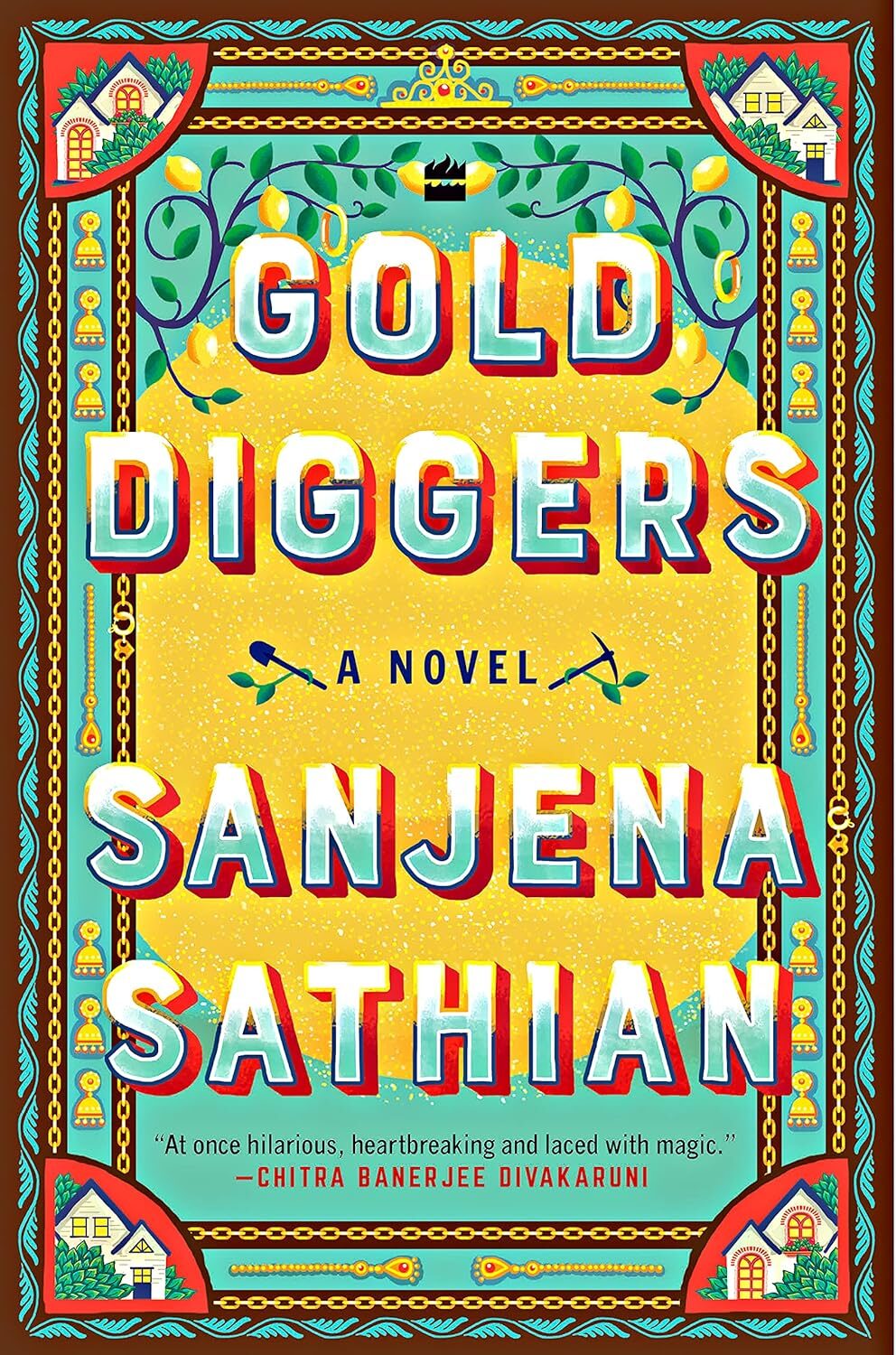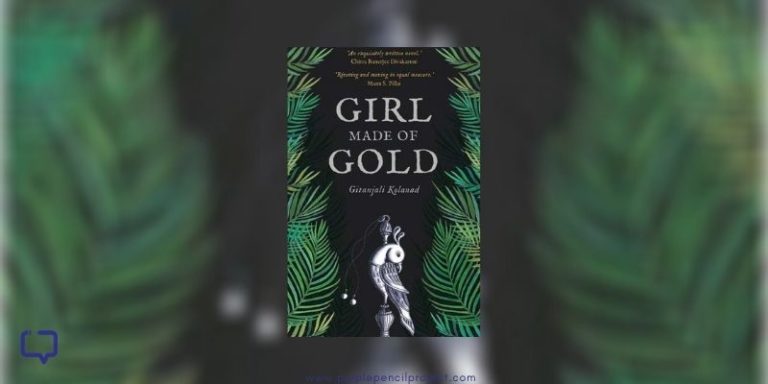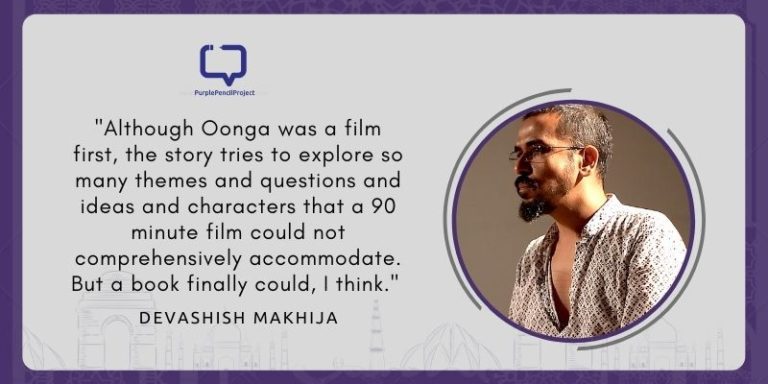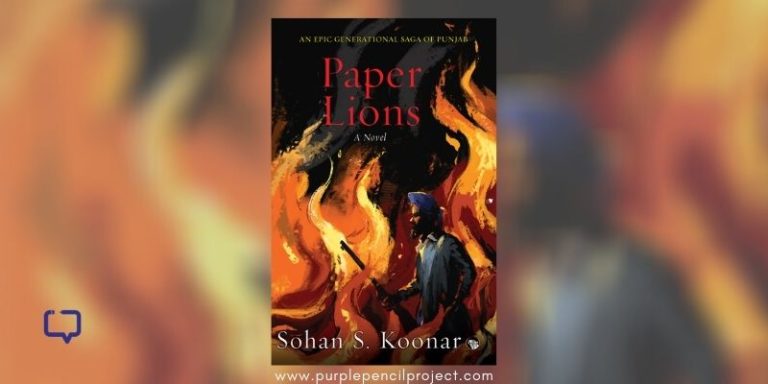Rahul Vishnoi reviews Gold Diggers by Sanjena Sathiyan (published by HarperCollins India, 2021).
Gold Diggers is a thorough deconstruction and dissection of the American dream of Indian immigrants. In a way, it is this generation’s The Namesake. Neil and Anita are neighbours in Atlanta, both under the concrete-esque pressure to fulfil (their parents’) American dream, which is basically getting into Harvard or any Ivy League institute. While Neil’s parents don’t really have a solid blueprint for this mission (he calls his father a shopkeeper, to which her mother retorts: your father is a pharmacist!), his friend (and now a crush), Anita’s mother, has a secret recipe up her sleeve to infuse that extra ambition and energy into her daughter: lemonade spiked with stolen gold.
Anjali, who runs a catering business, also sneaks into her client’s homes and nicks their gold ornaments. They are then smelted to make a special lemonade which Anita drinks to have that extra edge over other students. When this secret spills out to Neil, he wants in. Although Neil understands the gravity of the situation (“one day I’m gonna drown in all her lemonade.”), he can’t stop himself from taking another hit. Their collusion ends in a disaster. Anita and Anjali leave for California. Neil meets Anita after a decade, and she is now brewing another plan.
Literary Strengths and Weaknesses
Gold Diggers has one of the strongest prologues, filled to the ears with wistfulness and earnestness. However, the book loses its strength as it delves further into the lives of Neil and Anita. Both of whom are cracking under the pressure of becoming something, Neil more so.
I wished everyone would give up on me. Their gazes were too forceful, their hopes for me too enormous. For it felt, back in Hammond Creek, that it wasn’t our job just to grow up, but to grow up in such a way that made sense of our parents’ choice to leave behind all they knew, to cross the oceans. I couldn’t bear to be the only one among them — Prachi, Manu, Anita — who failed to achieve anything, who ultimately became nobody at all.
– Sanjena Sathiyan, Gold Diggers
The book has wit but not much humour. It remains dark and is relentless in its mocking of the Indians who “crossed oceans” to come to America. The humour of the book is subtle but sharp, like the writer has shared a lived space with her characters and experienced their lives. Sathiyan quips about an over-eager teacher who, perhaps mindful of the generation gap between her pupils and their parents, wants her class to read a plethora of short stories about the immigrant experience.

Perhaps sensing the generational gap between the youth of Hammond Creek and their forebears, my English teacher, Ms. Rabinowitz, an eager Bostonian transplant, decided our curriculum ought to include several short stories depicting the somber reality of the immigrant experience. Through these pieces, we learned that old people looking out windows symbolized nostalgia for their former nations. We learned that images of spring time symbolized youth, and we hypothesized that the changing of the leaves might imply a metamorphosis from Foreign to American, or perhaps from Life to Death.
– Sanjena Sathiyan, Gold Diggers
Characterisation and Themes in Gold Diggers
Gold Diggers is also ruthless to its minor characters. Some of them are described through Neil’s eye, who, being a self-centred teen, has these thoughts about his classmate:
“Her presence fractured a party. You were too aware of the sounds of her mouth-breathing, the way her face contorted when she tried to participate. It required emotional labor to include her, and it was simpler to dispense with all the kindergarten rules of engagement and ignore her.
Neil, written as imperfect as he can be by Sathiyan, has unconventional, perhaps even unkind, thoughts about his crush. As is the case with friends or lovers, they usually would try to comfort while a person is in distress. Neil, on the other hand, describes Anita’s as “screwing up her shoulders”, getting ready to inundate him with a volley of her suppressed emotions.
Neil, hooked on Anjali’s special lemonade, starts behaving like an addict, a tendency that continues well into his adult life.
I felt like a lazy, fat lion, remaining at home while the lioness hunted. I pictured myself tearing through the Bhatts’ mansion for Jay’s old coins or chains. Flipping Leela Matthews’s mattress upside down, seeking the lucky gold pinky ring she wore on test days. Most of all, Shruti. I pictured ripping her room apart. Absconding with all that gave her power. Those weirdly set eyes dimming. These impulses swelled in my vision, red and blinding, for minutes at a time before subsiding. Like war rage. Like blood lust.
– Sanjena Sathiyan, Gold Diggers
A Complex Protagonist
Neil is everything a hero is not in conventional mainstream writing. He has more flaws than virtues and would have been home as a negative character. He is too much on the wrong side of the greyscale, a property that doesn’t endear him to the readers. This is perhaps the only thing that’s common in Sathiyan’s protagonists: a strong wave of grey that crashes a bit too hard upon the reader.
He, however, shows a rare flare of wisdom: “Every emphasis on achieving a certain future came from the anxiety of simply not knowing, none of us knowing, what life here could be. There was no room to imagine multiple sorts of futures. We’d put all our brainpower toward conjuring up a single one: Harvard.”
We live alongside the past. It’s our neighbor. We bump into it in the checkout line, at the Laundromat, on the street.
– Sanjena Sathiyan, Gold Diggers
Anita is not too far away from Neil on the likeability scale. Being constantly pushed by her mother’s alchemy, she is more driven and sometimes cold. She doesn’t give in to Neil’s awkward advances and continues to ignore him. When they meet a decade later, she doesn’t shy away from involving him in her big plan. In places, it seems as if she is forcing herself to go soft on Neil. Manipulation comes to mind, too.
Conclusion
Overall, Gold Diggers is a good but sorrowful book. It could have been a little bit more colourful and less gloomy. Sathiyan could have painted her characters with an empathetic brush instead of dousing them with cruelty at the hands of their own children. A good story becomes great if at least one character is likeable. None here were.






















